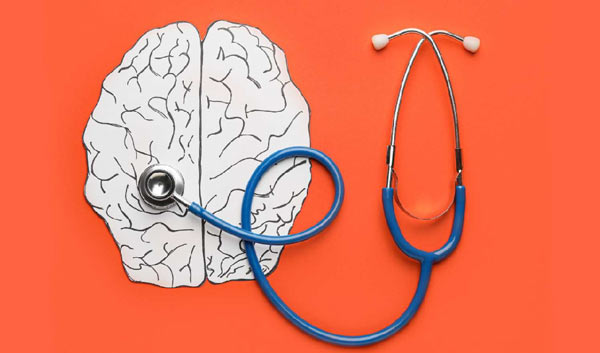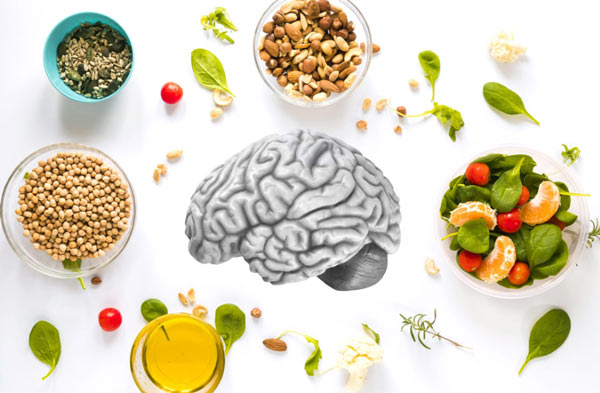Each passing day brings more understanding about how cardiovascular health relates to brain health in aging and wellness. The connections also play an essential role in cognitive functions and quality of life when we age. How the elders age and live healthily depends on the correlation between brain and heart health for some people. These are vital things in being able to stay active. Many studies say your heart is in order as long as your brain works. Discover the complexity of the relationship between the heart and brain in encouraging holistic, or whole-self, health outcomes for multiple seniors in this comprehensive blog post.

The Heart-Brain Connection
The heart-brain connection complex network connects cardiovascular systems with the brain tightly. The brain needs a sufficient supply of oxygen and nutrients, carrying blood for its smooth working, provided by the heart pumps. Breakdowns in this complex interaction may cause significant damage to mental health.
Blood Flow and Oxygen Supply
The most direct connection between cardiovascular function and cognition is the ability of brain cells to receive oxygen and nutrition efficiently. The heart provides good blood flow, which prevents cerebral hypoxia, which occurs when there is inadequate air supply to the brain. As a result, proper blood flow must facilitate the maintenance of cognitive functions and prevent age-related cognitive decline.
Hypertension and Cognitive Decline
The brain can also be affected by hypertension, which is one of the typical causes of cardiovascular diseases. Prolonged pressure to vessel walls can also harm arteries and reduce blood flow into brain tissue. This may cause mental deterioration over a period in the long run, leading to vascular dementia.
Nutrition and Lifestyle
A healthy diet is also essential to have a healthy heart-brain connection. If you eat a good portion and take care of your everyday meals, you can live a healthy and energetic life.
Heart healthy diet may be adopted for the betterment of the cardiac and brain health.` Omega-3 fatty acids, antioxidants, and saturated fats-rich diets are linked to the reduced risk of heart diseases and enhanced cognitive performance. These include fatty fish, nuts, berries, and leafy greens, essential in maintaining good general health.

Regular Physical Activity
Heart health is built around physical exercises, which benefit the brain. Regular exercise improves blood flow, prevents heart diseases, and promotes better thought power. Taking part in activities such as walking, swimming, or aerobics may improve overall health and lengthen the lifespan of the heart and brain. You should follow a set pattern each day and try at least half an hour of physical activity to maintain your health and have a quality life.
Maintaining a Healthy Weight
Heart disease and obesity have been associated with an increased risk of cognitive decay. Older people can help to have a healthy heart and brain by eating well and regularly exercising. They can perform various types of exercise by just searching it through Google and other social networks.
Managing Stress
Stress can be a significant problem to your health, and it might develop multiple health issues unsuitable for your overall well-being. As we all know, heart problems and cognitive impairment have been linked to chronic stress. Therefore, everyone should follow stress management techniques like meditation, deep breaths, and hobbies that can be used to build a healthy heart and cognitive resilience.
Regular Health Check-ups
Regular health checkups are the ones that help you to gain better clarity about your health and overall body function. It is essential to have regular health checks to monitor one’s cardiovascular health and address such problems early. Routine screening for risk factors such as hypertension, cholesterol, and diabetes can help manage cardiovascular illness and their effects on cognition.
Medication Adherence
It is also essential for people with heart problems to strictly adhere to prescribed medicines. Medications that help manage blood pressure, cholesterol levels, etc, play a critical part in keeping the heart healthy, so ultimately, the brain will be safe, too. Still, it is better to consult your doctor before using any such medicine to keep you safe and healthy at the same time.
Collaboration Between Cardiologists and Neurologists
A multidisciplinary approach involving collaboration among cardiology and neurology professionals is critical to delivering complete care for older adults. This collective approach considers the linked relationship between cardiovascular disease and cognitive impairment, thus enhancing interventions developed, as they are more efficient for prevention and treatment options.
Social Connections and Cognitive Resilience
Cognitive resilience and maintaining social ties at an early age are also critical factors in maintaining a healthy life. Emotional well-being, depression, and stress have a direct link with heart health. Such social interactions help create meaningful relationships, and social engagement positively contributes to health outcomes.
Cognitive Stimulation
Relationships between a heart and health also depend on how happy you are and how playful your mind is. Puzzles, games, or learning novel skills can play a role in supporting cognitive ability. Neural plasticity keeps the brain busy and sharp, improving cognitive function in older adults.
Conclusion
Health-oriented approaches are critical for ensuring that brain health is sustained and overall wellness remains intact among older adults during aging. Thus, a holistic approach should be adopted involving diet, lifestyles, medical treatments, social support, and emotional well-being, highlighting the interconnectivity of cardiovascular health and cerebrovascular illnesses. Recognizing and cultivating this mutually beneficial relationship could improve cardiovascular fitness and stronger memory in the golden age.







